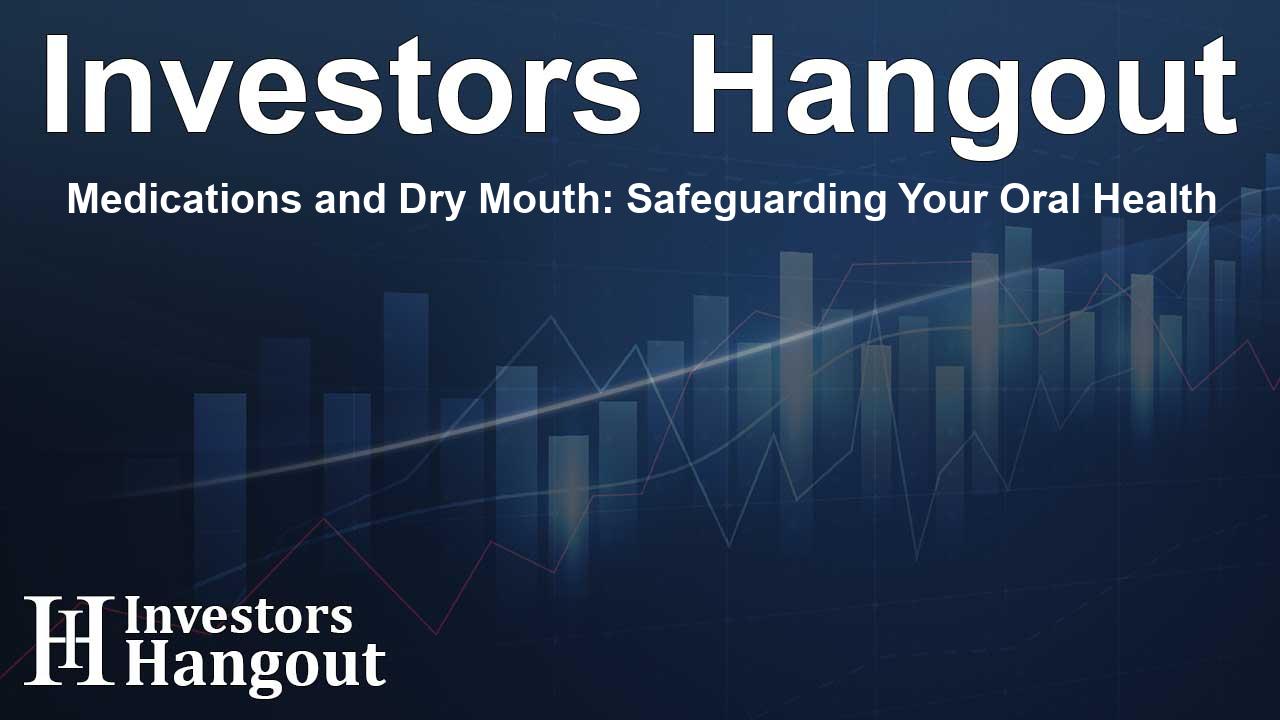Medications and Dry Mouth: Safeguarding Your Oral Health

Addressing the Challenge of Dry Mouth in Patients
Dr. Todd M. Britten, a renowned periodontist, is drawing attention to a significant yet frequently overlooked problem among patients on various psychiatric medications. Dry mouth, or xerostomia, can emerge as a troublesome side effect, especially for those using treatments for conditions like ADHD, anxiety, and depression. Understanding the implications of dry mouth is vital as it may lead to serious dental issues, including periodontal disease, cavities, burning mouth syndrome, and oral infections.
The Impact of Medications on Saliva Production
Numerous medications, particularly those aimed at treating mental health issues, have been identified to reduce saliva production significantly. Among these, several categories warrant closer examination:
Stimulants, commonly prescribed for ADHD, such as Adderall, can contribute to dehydration and dry mouth. Likewise, Antidepressants, which include SSRIs and tricyclic antidepressants, are known to hinder saliva flow. Anxiety medications, particularly benzodiazepines, also exhibit a drying effect on oral tissues. Furthermore, psychotropic medications used for more severe mental health conditions are associated with a substantial decrease in saliva production.
Consequences of Reduced Saliva Flow
Saliva plays a crucial role in maintaining oral health, acting as a natural defense against harmful bacteria. A decrease in saliva can lead to multiple oral health complications:
- Periodontal Disease: The diminished flow of saliva fosters an environment conducive to bacterial growth, resulting in conditions like gingivitis and periodontitis.
- Dental Caries: A lack of saliva enhances the risk of tooth decay, particularly in crevices and along the gumline.
- Burning Mouth Syndrome: Some patients may experience a persistent burning sensation in the mouth, especially those on certain psychotropic medications.
- Candidiasis: Insufficient saliva can lead to a higher incidence of fungal infections such as oral thrush, causing discomfort and sores.
Effective Strategies to Combat Dry Mouth
Dr. Britten suggests several practical steps that patients can adopt to mitigate dry mouth's effects:
- Stay Hydrated: Regularly drinking water throughout the day helps to keep the mouth moist and combat dryness.
- Use Saliva Substitutes: Consider using artificial saliva products or chewing sugar-free gum with xylitol to stimulate saliva flow.
- Maintain Good Oral Hygiene: Regular brushing with fluoride toothpaste and flossing are key practices for minimizing plaque accumulation.
- Regular Dental Checkups: Routine visits to the dentist allow for professional cleanings and fluoride treatments, providing ongoing oral health support.
- Avoid Dehydrating Substances: Limiting alcohol and caffeine intake can help reduce mouth dryness.
- Consult Your Physician: Discuss with your healthcare provider about possible adjustments to medications that may lead to less dryness.
Conclusion: Being Proactive for Your Oral Health
Dr. Todd M. Britten urges individuals taking medications associated with dry mouth to be proactive about their oral health. Understanding the potential risks and implementing effective preventive measures can greatly diminish the adverse impacts of dry mouth. It’s essential for patients on long-term psychiatric medications to maintain open communication with both dental and medical professionals to manage any arising side effects effectively.
About Dr. Todd M. Britten, DMD
Dr. Todd M. Britten is a board-certified periodontist specializing in comprehensive dental care and advanced periodontal treatments. His dedication to patient education has enabled numerous individuals to achieve and maintain optimal oral health.
Frequently Asked Questions
What is dry mouth and why is it a concern?
Dry mouth, or xerostomia, is a condition where saliva production is reduced, leading to increased risk of dental problems such as cavities and gum disease.
Which medications commonly cause dry mouth?
Medications for ADHD, depression, anxiety, and other psychiatric conditions are often linked to decreased saliva flow.
How can I alleviate the symptoms of dry mouth?
Staying hydrated, using saliva substitutes, and maintaining good oral hygiene can help manage symptoms of dry mouth.
What dental complications can arise from dry mouth?
Dry mouth can lead to periodontal disease, cavities, burning mouth syndrome, and increased risk of oral infections.
When should I see a dentist regarding dry mouth?
Consult with a dentist if you experience persistent dry mouth, especially if you're on medications known to cause this condition.
About The Author
Contact Evelyn Baker privately here. Or send an email with ATTN: Evelyn Baker as the subject to contact@investorshangout.com.
About Investors Hangout
Investors Hangout is a leading online stock forum for financial discussion and learning, offering a wide range of free tools and resources. It draws in traders of all levels, who exchange market knowledge, investigate trading tactics, and keep an eye on industry developments in real time. Featuring financial articles, stock message boards, quotes, charts, company profiles, and live news updates. Through cooperative learning and a wealth of informational resources, it helps users from novices creating their first portfolios to experts honing their techniques. Join Investors Hangout today: https://investorshangout.com/
The content of this article is based on factual, publicly available information and does not represent legal, financial, or investment advice. Investors Hangout does not offer financial advice, and the author is not a licensed financial advisor. Consult a qualified advisor before making any financial or investment decisions based on this article. This article should not be considered advice to purchase, sell, or hold any securities or other investments. If any of the material provided here is inaccurate, please contact us for corrections.
